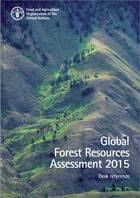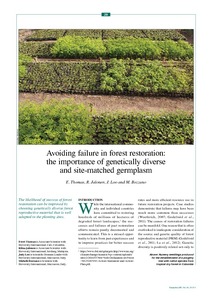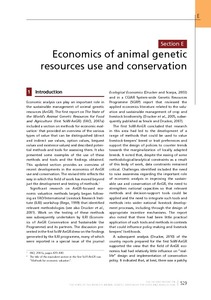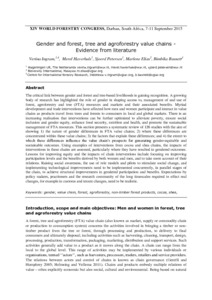Focal point
Location
The Food and Agriculture Organization of the United Nations leads international efforts to defeat hunger. Serving both developed and developing countries, FAO acts as a neutral forum where all nations meet as equals to negotiate agreements and debate policy. FAO is also a source of knowledge and information. We help developing countries and countries in transition modernize and improve agriculture, forestry and fisheries practices and ensure good nutrition for all. Since our founding in 1945, we have focused special attention on developing rural areas, home to 70 percent of the world's poor and hungry people.
Members:
Resources
Displaying 1376 - 1380 of 5074Global Forest Resources Assessment 2015
The Global Forest Resources Assessment 2015 (FRA 2015) development began in June 2011 when the FRA Advisory Group discussed the FRA Long-Term Strategy and its implications for FRA 2015. The design process involved users, national correspondents and experts from a wide variety of technical backgrounds.
Avoiding failure in forest restoration: the importance of genetically diverse and site-matched germplasm
Economics of animal genetic resources use and conservation
Economic analysis can play an important role in the sustainable management of animal genetic resources (AnGR). The first report on The State of the World’s Animal Genetic Resources for Food and Agriculture (first SoW-AnGR) (FAO, 2007a) included a section on methods for economic evaluation 1 that provided an overview of the various types of value that can be distinguished (direct and indirect use values, option values, bequest values and existence values) and described potential methods and tools for assessing them.
Gender and forest, tree and agroforestry value chains - evidence from literature
The critical link between gender and forest and tree-based livelihoods is gaining recognition. A growing
Gender and forest, tree and agroforestry value chains - evidence from literature
The critical link between gender and forest and tree-based livelihoods is gaining recognition. A growing










